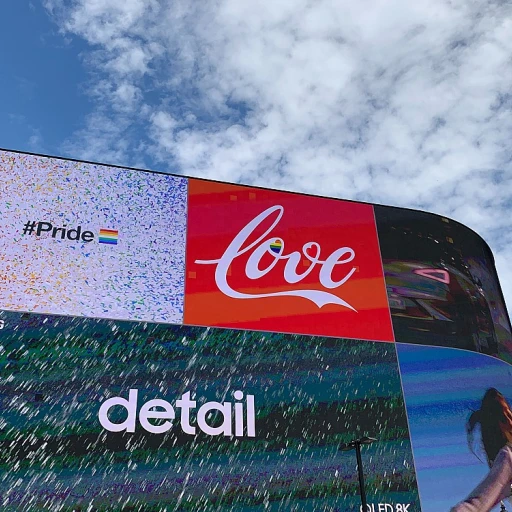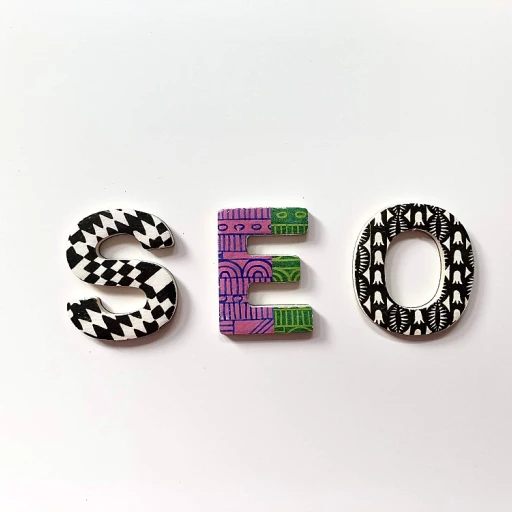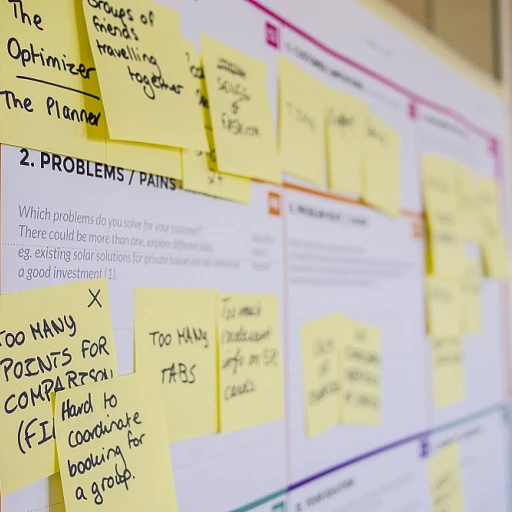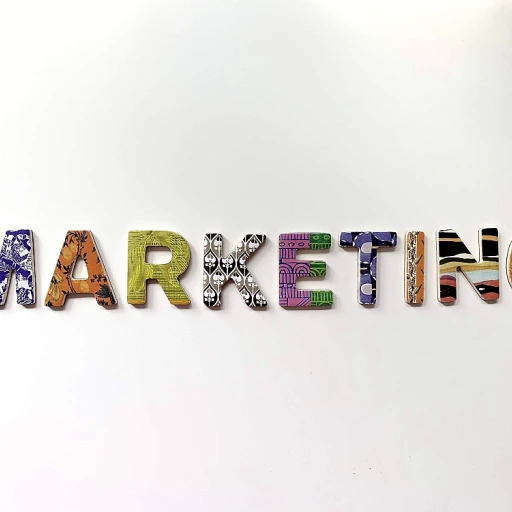
Understanding AI's Role in SEO
Exploring AI's Impact on SEO Strategy
AI has become a cornerstone in the evolving landscape of search engine optimization (SEO), making significant contributions to enhancing efficiency and effectiveness. By leveraging AI technologies, businesses can automate repetitive tasks, enabling marketers to focus on more strategic aspects of event marketing.
AI-driven SEO tools can analyze vast amounts of data in real time, providing insights that optimize content and drive higher engagement. For instance, AI facilitates precise keyword optimization, helping product events achieve greater visibility. This technology dissects search trends and user behavior, ultimately guiding brands to tailor their strategies accordingly.
Moreover, AI supports the automation of marketing workflows, such as managing email campaigns and scheduling social media posts. This not only enhances efficiency but also ensures timely and relevant communication with attendees. Harnessing AI for these purposes boosts overall customer engagement and satisfaction.
To learn more about how AI enhances the competitiveness of SEO, visit the full article.
The Intersection of AI and Marketing Automation
Integrating AI with Marketing Automation Systems
In the realm of event marketing, merging artificial intelligence with marketing automation systems offers immense potential for enhancing productivity and driving engagement. By leveraging AI, businesses can streamline various marketing tasks, providing a more personalized experience for customers and ultimately increasing efficiency.- Email Personalization: AI-powered tools can analyze customer data to create personalized email marketing strategies. This ensures that attendees receive event-based emails that resonate with their preferences and behaviors. As a result, email marketing campaigns become more effective, fostering higher engagement rates and improving overall marketing automation strategies.
- Social Media Management: AI can optimize social media interactions by scheduling posts, analyzing audience responses, and suggesting the best times for engagement. This automation not only saves time in managing social channels but also maximizes the impact of event marketing efforts.
- Automated Workflows: AI enhances event management through automated workflows. These workflows can help in event planning by monitoring attendee registrations and sending timely reminders, ensuring that no detail is overlooked and that every part of the event happens seamlessly.
AI-Driven Content Strategies for Product Events
Crafting content for product events involves more than just delivering information; it requires creating meaningful experiences. AI can significantly assist content creators in achieving this goal, tailoring content strategies to better align with the audience's needs.- Content Curation and Generation: AI can sift through vast amounts of data to identify trends and topics that interest your audience. By automating the content curation process, it ensures that the content delivered is both relevant and timely. Furthermore, AI tools can generate content based on best practices, enhancing the efficiency and creativity of the content team.
- Real-Time Content Adjustments: Leveraging AI capabilities allows marketers to adapt content in real time during events. Whether it's modifying presentations or updating live blog posts, these timely adjustments keep content fresh and engaging.
- Strategy Improvement: AI provides actionable insights through event analytics. These insights allow marketers to refine their strategies post-event, ensuring that future product events are even more successful. For more on how AI forecasting can enhance your strategies, explore enhancing SEO strategies with AI-powered forecasting.
Leveraging AI for Keyword Optimization
Unlocking the Power of AI in Keyword Optimization
Harnessing artificial intelligence to enhance your keyword strategy can significantly elevate your search engine optimization efforts, making it an indispensable tool in today's marketing landscape. AI's ability to process vast amounts of data in real time allows marketers to identify and target the best keywords that align with product events and their specific audiences.
AI-driven tools can analyze an extensive range of data points, including user behavior, competitor strategies, and emerging industry trends, to suggest optimal keywords for your SEO strategies. This process ensures your digital marketing tactics are both effective and efficient, enabling you to engage with potential attendees and customers in meaningful ways.
Real-Time Data Analysis for Enhanced Decision Making
AI's capacity for real-time data analysis is a game-changer in events marketing, as it provides actionable insights that can lead to better decision-making and increased engagement. By utilizing machine learning algorithms, marketers can predict customer behavior and refine strategies based on concrete data, enhancing overall productivity in event planning and execution.
Moreover, this data-driven approach optimizes email marketing campaigns by tailoring content based on attendee interactions and preferences, ensuring that automated emails retain relevance and appeal. Consequently, these personalized engagements foster stronger connections with your audience, boosting brand loyalty and optimizing your marketing automation processes.
Integrating AI for Seamless Automation
The integration of AI doesn't just stop at keyword optimization. It permeates all aspects of events marketing, offering advanced tools that streamline workflows and minimize the time spent on repetitive tasks. AI-enabled marketing automation tools can effortlessly manage event registration, attendee communication, and post-event follow-ups, thus improving overall operational efficiency.
By adopting best practices in AI-based automation, companies can enhance their event management strategies, delivering exceptional attendee experiences and maximizing return on investment in product events. With AI at your side, your marketing efforts are not only more targeted but also more agile and adaptive to the ever-evolving digital landscape.
AI-Powered Content Creation and Curation
Harnessing AI for Tailored Content Strategies
Artificial intelligence has revolutionized the landscape of content creation and curation. By leveraging advanced algorithms, businesses can automate repetitive tasks and focus more on providing valuable and personalized content to their audiences. This is particularly beneficial in events marketing, where the competition to capture attendee engagement is fierce. One of the most significant advantages of using AI in content creation is the ability to gather and analyze vast amounts of data in real time. This data-driven approach allows companies to generate highly targeted marketing content that resonates well with their audience. Whether it’s crafting personalized email marketing campaigns, or social media posts, AI automation tools enable marketers to cater their messaging based on the preferences and behaviors of their customers. Moreover, AI facilitates the curation of content by automating the process of collecting and categorizing information from various sources like social media, articles, and industry reports. This not only saves time for marketing teams but also ensures that the most relevant and up-to-date content is chosen for distribution. Such tools can assist product events by ensuring the latest product information and best practices are communicated effectively to all stakeholders. AI-powered tools also support the development of personalized content workflows. By analyzing customer engagement and feedback, AI can help businesses refine their content strategy, ensuring that the right message reaches the right audience at the right time. For instance, AI can automate the process of sending follow-up emails after event registration, making sure that no potential attendee slips through the cracks. The integration of AI into content strategies allows companies to maintain a competitive edge in the digital marketing arena. By optimizing content delivery through automation, businesses can enhance engagement and drive successful results for their events and product launches.Predictive Analytics in Event Marketing
Using Predictive Analytics to Transform Event Marketing
Incorporating predictive analytics into event marketing strategies offers the potential to significantly enhance the efficiency and success of product events. Thanks to the vast amount of data collected during event planning and execution, leveraging AI-driven predictive tools can transform how marketers approach tasks like attendee engagement and post-event analysis. Predictive analytics provides actionable insights, helping marketers anticipate trends and attendee behavior. This enables the creation of more personalized and engaging content for different stages of an event. For example, AI can help predict which automated emails or communication strategies will resonate best with prospective attendees, ensuring higher engagement rates and attendance. Moreover, AI-powered predictive analytics allow event marketers to identify the optimal timing and channels for communication, be it through email marketing or social media platforms. This capability is essential for tailoring strategies that maximize interactions before, during, and after events. Beyond communication, these analytics enable marketers to uncover patterns and trends related to product events' success. By analyzing data from past events, AI can forecast the outcomes of future strategies and suggest enhancements to the overall marketing automation plan. As companies focus on optimizing their event management processes, incorporating predictive analytics provides a competitive edge. However, it's important to consider the challenges and future trends of integrating AI in event marketing, ensuring alignment with the latest technological advancements while adhering to best practices. As the digital marketing landscape evolves, so too must the strategies employed by event marketers, placing a growing emphasis on data-driven decision-making and automation tools to drive success.Challenges and Future Trends
Overcoming AI Integration Challenges
Integrating artificial intelligence into event marketing and automation strategies presents a set of unique challenges. While AI offers significant advantages in optimizing content and enhancing customer engagement, it also requires substantial investment in terms of time and resources. Businesses must carefully assess their current infrastructure to ensure compatibility with advanced AI tools and systems.
Another challenge lies in data management. AI systems thrive on data, but ensuring data quality and security is paramount. Companies must adopt best practices for data collection and storage to safeguard customer information and maintain trust. Furthermore, aligning AI-driven insights with human creativity remains a delicate balance, as AI can efficiently handle repetitive tasks but might struggle with nuanced decision-making.
Future Trends in AI and Event Marketing
Looking ahead, AI's role in event marketing is set to expand, with predictive analytics becoming a cornerstone for strategic decision-making. As discussed in previous sections, AI can analyze vast amounts of data in real time, providing actionable insights that enhance event planning and attendee engagement. This capability will likely evolve, offering more personalized and dynamic event experiences.
Automation tools will continue to evolve, streamlining workflows and reducing the time spent on repetitive tasks. This evolution will allow marketers to focus more on creative strategies and customer interactions. Moreover, AI's integration with social media platforms will further enhance post-event engagement, offering new ways to connect with attendees and gather feedback.
In conclusion, while challenges exist, the future of AI in event marketing and automation is promising. By staying informed about the latest trends and adopting a strategic approach, businesses can harness AI's full potential to enhance their marketing efforts and drive success in product events.













